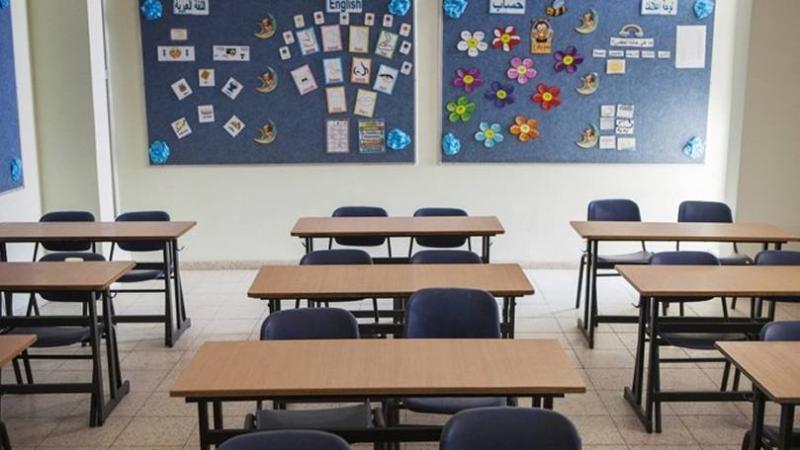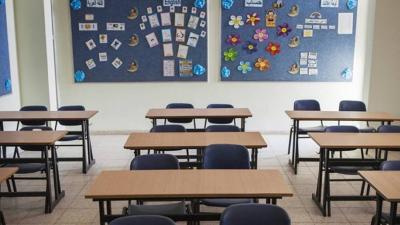Human rights violations are increasing in Lebanon amidst the economic crisis affecting all aspects of life. This encroachment on the right to education, enjoyed by children and students, is due to the economic distress that has raised school fees. This decline in the quality of life is imposed by the political authority on the Lebanese people and is reflected in education, inevitably creating a new generation characterized by social discord, as the equation states: poverty breeds discord.
How will parents cope with the division of school fees in private schools, between fresh dollars and the Lebanese pound, which is an additional burden compared to last year? “Nidaa Al-Watan” asked residents of Kesrouan, Metn, and Jbeil about their new reality, finding that this issue occupies parents' minds, in addition to the challenge of securing basic income.
What are the options for parents? Last year was manageable for Shadi (an employee in a company from Jbeil). He managed to pay what was necessary as long as the amount was under ten million Lebanese pounds. However, with news spreading about raising the fee to 13 million Lebanese pounds, plus an amount in dollars among parents, he rushed to obtain the school certificate to register his children in another school. His salary, which does not exceed three million pounds, does not even allow him to pay for the electricity generator, so how can he secure school fees along with transportation costs that have become equivalent to the fees? His solution was to transfer them to a school with lower fees.
On the other hand, Jozefine (a pseudonym) who works in the public sector, is affected by the low salary on her children's future. She began the procedures to transfer them from an expensive school in Kesrouan. In those procedures, she sold her gold, which was once her wedding gift. She found that the food aid fund at the new school is effective, as it takes on one child while the second one is covered by another means.
Lawrence (a pseudonym, an employee at a school) is currently unable to pay all the new dues, but the parents' committee at her children's school in Metn is divided on confronting the school in rejecting these increases. This division and fear of the exploitation of children as hostages or means of coercion, whether through their exclusion in class or mistreatment, led her to concede to the inevitable reality. She referred us to others who had transferred their children to semi-free internal schools, where transportation, clothing, and food are provided. Those wishing to transfer their children to official schools, like Jebril who is concerned about last year’s teachers' strikes, are forced to look for a public school near their home. Some parents, like Tawfik, focus on transportation costs, as he used to entrust his son's education to a free private school, but the long distance from home in Metn compelled him this year to seriously look for a nearby private school with fees equivalent to last year's transportation costs.
How have schools dealt with the rising cost of living? “Nidaa Al-Watan” asked several schools about their "adaptation" to the rising cost of living and found that 100% of schools in Metn, Jbeil, and Kesrouan will increase their fees and will also implement additional increases in dollars, aside from those that are free. An administrator at a school in Jounieh stated that the payment rate last year was acceptable with some installments and time extensions. This year, the increase will double to about one thousand one hundred dollars per student, plus an amount in Lebanese pounds. This is due to teachers' salaries and the rise in the cost of school supplies that must be paid in dollars. According to the school's calculations, this amount is lower than the actual school expenses, but a policy of austerity will be adopted.
What about the Ministry of Education's prohibition on collecting amounts in dollars and the law? The administration responded with a question regarding whether the Ministry of Education would bear the costs incurred by the school. The German school was among the few that responded, unlike a school in Jbeil which preferred not to comment on circulating information regarding the dollar increase, meaning it has become a fait accompli. The Al-Mansef school will increase fees in fresh dollars alongside the Lebanese pound due to the rising cost of living. We inquire: What about the budget? The administration replied: Parents can come to review it! If the number of children exceeds one per family, families may benefit from a student assistance service. A school in Kesrouan dodged the question, tossing the ball into the French embassy's court, which took over the school's administration. Those who answered our call mentioned that the general director could not speak with us as he does not know the financial details, being French.
In Metn, according to one school director, the school has tried to maintain a certain level of fee increase to remain the cheapest school in the area. Nevertheless, there is a standardized increase of 200 dollars for all students, and father Ghassoub hopes for state aid and donations. As for the "Louis Fagman" school, they have no data or indicators regarding transfers from there.
One high-level source in the educational sector, active in the field of public schools, confirmed that the data from Catholic schools suggest a 20% transfer to public schools. He stressed that if the Ministry of Education were to establish a crisis management plan, public schools could accommodate this number of transfers, noting the possibility of opening a fund with permission from the Ministry of Education to collect additional funds for filling heating fuel in winter.
What is the position of parents' committees on these increases? Lamaa Al-Zein Tal, president of the Union of Parents' Committees in private schools, acknowledges the inevitability of fee increases, but insists that it is legally the financial committee’s responsibility to determine fees after studying the budget. Therefore, schools must provide full documentation to the financial committee for auditing since they will not receive a "blank check" without inspection to ascertain the validity of the increase, as some schools have exaggerated, having presumably formed a sufficient idea about their expenses since the previous year. She has great grievances against the Ministry of Education; it merely advises compliance with Law 515, and if a school fails to comply, it refers the issue to arbitration councils which are virtually nonexistent. However, for the past two weeks, the ministry has been meeting with parents and schools to find an "organizational" formula for these increases. She advises parents to pay the amount in Lebanese pounds only and not to pay obligations in dollars, which is illegal. As long as educational judiciary remains absent (has not been established for ten years), schools will not comply with the law, and there are already 35 lawsuits pending in Mount Lebanon before the arbitration council. Hence, the parties have turned to provisional judges to contest the increases. Lamaa Al-Tal examines the so-called emergency fund for families, questioning whether this "novelty" is mandatory or a donation? It cannot be compulsory for the parents, and it must include donations received by schools, which need to be reviewed.
What is the psychological impact of changing schools on children? Transferring children from one school to another repeatedly can have negative effects, according to psychotherapist Eli Abou Shaqra. If a child is cut off from their social environment in their previous school and moves to another, it may cause them shock unless the previous school had a negative impact on them initially. Abou Shaqra advises that if the student is under ten years old, they should be introduced to the new school beforehand, with a preparatory phase. Meanwhile, psychotherapist Carole Saadeh believes the economic situation will be challenging for both parents and children; however, transferring from one school to another can be fruitful, offering the chance to experience a new environment. There should be no pessimism, especially as a child over six may begin to understand the new economic situation and should be answered to clearly. Dr. Saadeh points out that the new school the child will transfer to should assist them in integrating and forming relationships with classmates, alongside parental support. If parents notice signs of sadness, they can coordinate with the school to support the child positively during the transition, which will reflect positively on the child.




